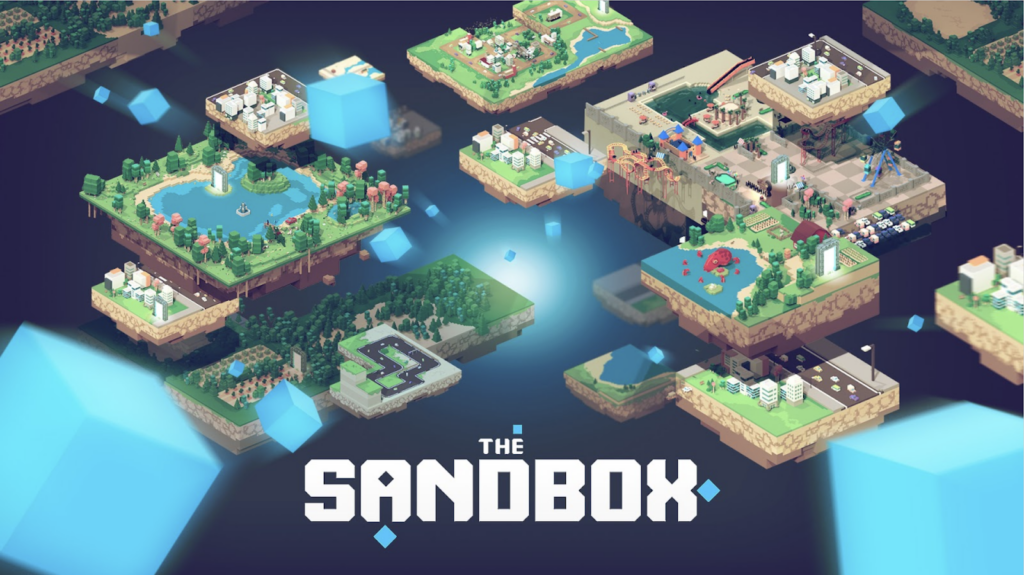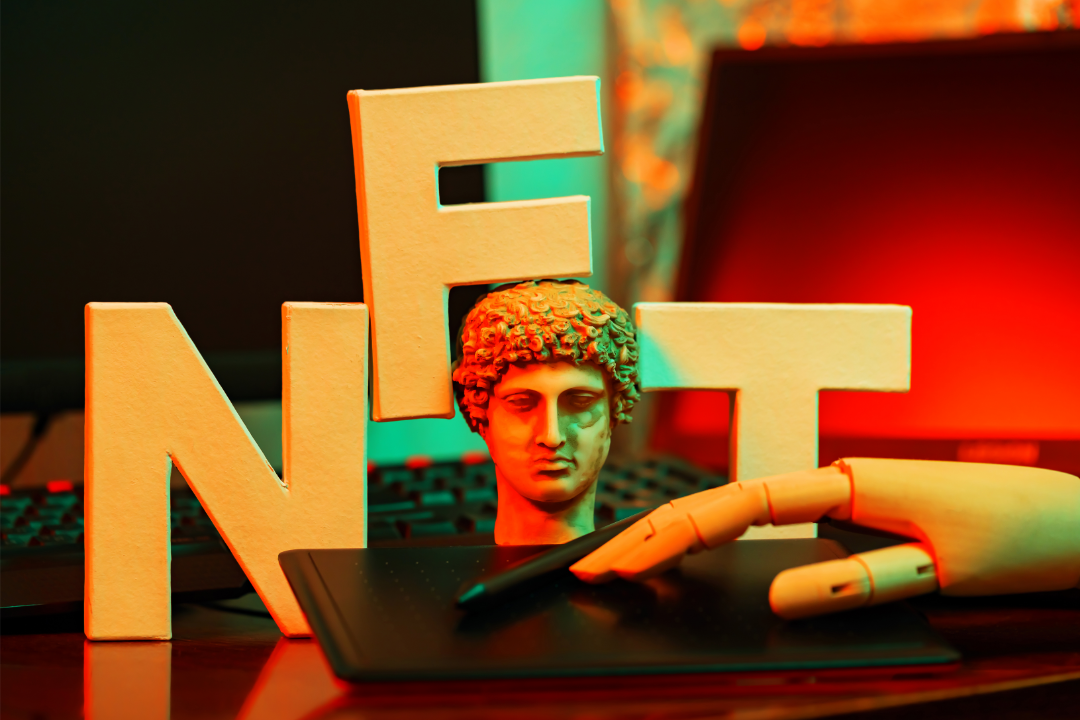The gaming world is undergoing a monumental shift, and at the heart of this revolution is blockchain technology and its powerful component: NFTs (Non-Fungible Tokens). These unique digital assets are making waves not just in the art world, but in gaming too, creating opportunities for players and developers alike to explore new ways of owning, trading, and interacting with in-game content. But as the NFT gaming landscape continues to grow, the question arises: what are the best NFT games you should be playing in 2025? Let’s dive in and explore the games leading the charge in this exciting new era of gaming.
What are NFTs and How Do They Work?
Before we explore the top NFT games to watch in 2025, let’s first understand what NFTs are and how they work in gaming.
NFTs are digital tokens that are stored on a blockchain, a decentralized ledger that records every transaction. Unlike cryptocurrencies such as Bitcoin or Ethereum, NFTs are unique—meaning no two NFTs are identical. This uniqueness is what gives them value, especially in gaming, where they can represent in-game assets such as characters, weapons, skins, land, and more.
One of the most significant aspects of NFTs in gaming is the concept of true ownership. In traditional gaming, players purchase or earn in-game items, but they never truly own them. These items exist within the confines of the game’s ecosystem and have no value outside of it. NFTs change this by granting players real ownership over their digital items. You can sell, trade, or use these NFTs in different games, opening up new possibilities for virtual economies.
NFTs in Gaming: The Rise of Play-to-Earn (P2E) Models
The advent of NFTs has brought about a shift in gaming models, with the most prominent being play-to-earn (P2E). This new paradigm allows players to earn NFTs and cryptocurrency simply by playing the game, creating a unique intersection between entertainment and economic opportunity.
In P2E games, players can earn tokens by participating in the game’s economy, whether that’s by battling enemies, building virtual worlds, or even owning virtual real estate. The earnings can be exchanged for real-world money, which is especially transformative for players in developing regions.
Popular platforms like Axie Infinity, The Sandbox, and Decentraland have already proven the power of P2E models, where players not only enjoy the game but also stand to gain financially. These games are just the tip of the iceberg, as more developers recognize the potential of integrating NFTs and blockchain technology into their gaming ecosystems.
See more: NFT Launchpad: everything you need to know about NFT Launch
Digital Ownership and the Future of In-Game Assets
NFTs are reshaping the concept of digital ownership. Unlike traditional gaming models where in-game assets are confined to the game itself, NFTs allow players to truly own their digital items. This means you can trade, sell, or even use your in-game assets across different games—something that was previously unimaginable.
Interoperability is one of the most exciting aspects of NFTs in gaming. Imagine purchasing a rare skin or weapon in one game and using it in another game that also supports the same blockchain technology. This opens up entirely new opportunities for players to interact with their digital collections across different gaming platforms.
Moreover, NFTs also allow players to create and sell in-game content, from digital art to character skins or even virtual land. This blurs the lines between gaming and digital entrepreneurship, empowering players to monetize their creativity and skills. With NFTs, gamers are no longer just players—they can also be creators and entrepreneurs in their own right.
NFTs and the Evolving Game Development Landscape
The integration of NFTs is not only a game-changer for players but also for game developers. By utilizing blockchain technology, developers can create new revenue models that allow for continuous income from in-game assets, rather than relying solely on upfront game sales or subscriptions.
Indie developers, in particular, stand to benefit from the opportunities NFTs present. With NFTs, developers can sell unique in-game items or even offer players the chance to create their own content, which can then be sold to other players. This decentralized approach to game development also allows for greater creative freedom, without the constraints often imposed by large publishers.
Additionally, blockchain-based games offer decentralized governance, which allows players to have a direct influence on the game’s economy, updates, and direction. Through decentralized autonomous organizations (DAOs), players can participate in voting on key decisions that shape the future of the game, giving them a sense of ownership over the gaming experience.
Challenges and Criticisms: Is the NFT Gaming Boom Sustainable?
As with any emerging technology, NFT gaming comes with its share of challenges and criticisms. One of the primary concerns is the environmental impact of blockchain technology, particularly those using energy-intensive proof-of-work systems. Although some blockchain platforms are adopting more eco-friendly alternatives, the energy consumption of NFTs is still a contentious issue.
Additionally, the speculative nature of NFT trading has led to concerns about market volatility and price manipulation. Some critics argue that the hype surrounding NFTs could lead to a bubble, where prices skyrocket and crash, leaving players with worthless assets. The potential for “pay-to-win” models, where wealthy players can buy rare and powerful NFTs to gain an advantage, also raises ethical concerns about fairness and accessibility.

Despite these challenges, the industry is taking steps to address these issues. More blockchain networks are adopting sustainable practices, and regulations are being put in place to protect players and ensure fairness in the market.
The Future of NFT Gaming: Trends to Watch
The future of NFT gaming looks incredibly promising. As blockchain technology evolves and more games integrate NFTs, we can expect to see even more exciting developments. For one, the interoperability of NFTs across different games could become more widespread, allowing players to seamlessly transfer assets from one game to another.
NFTs could also play a major role in the future of esports, with tournaments offering NFTs as rewards or as part of the prize pool. This would not only add a new dimension to competitive gaming but also give players a tangible, tradable asset as part of their achievements.
Major gaming companies like Ubisoft and Electronic Arts are already exploring NFTs, signaling a broader mainstream acceptance of NFT-based games. As more developers enter the space, we can expect a surge in innovative gameplay and new economic models that further blur the lines between gaming and virtual economies.
Top 10 NFT Games You Should Play in 2025
Now that we’ve explored the transformative potential of NFTs in gaming, let’s take a look at the top 10 NFT games you should consider playing in 2025.
- Axie Infinity
One of the pioneers in NFT gaming, Axie Infinity allows players to collect, breed, and battle creatures called Axies. With its play-to-earn mechanics, Axie Infinity has become a global sensation, especially in countries like the Philippines. - The Sandbox
The Sandbox is a virtual world that allows players to create, own, and monetize their virtual experiences. From building virtual land to creating games, The Sandbox provides players with endless possibilities for creativity and profit. - Decentraland
Decentraland is a metaverse where players can buy, sell, and build on parcels of virtual land. It’s a hub for digital art, social interaction, and economic opportunities, making it one of the most immersive NFT games available today. - Illuvium
Illuvium is a sci-fi RPG and auto-battler where players can capture and battle mythical creatures known as Illuvials. It combines high-quality graphics with a play-to-earn model, creating an exciting and profitable gaming experience. - Gods Unchained
A strategic card game that brings NFT elements into the competitive card game genre, Gods Unchained allows players to earn and trade unique cards that can be used in battles or sold on secondary markets. - CryptoKitties
One of the first NFT games to capture mainstream attention, CryptoKitties lets players collect, breed, and trade digital cats. While it’s a simpler game, its iconic status in the NFT space makes it an enduring favorite. - Star Atlas
Set in a space-faring universe, Star Atlas offers players the chance to explore galaxies, mine resources, and engage in epic space battles. Its NFT-driven economy makes it a complex and immersive experience for fans of science fiction. - TownStar
TownStar is a city-building game where players can earn NFTs by developing and managing virtual towns. With its play-to-earn mechanics, players can create sustainable economies and earn rewards for their efforts. - My Neighbor Alice
In this multiplayer builder game, players can buy land, build structures, and interact with their neighbors in a virtual world. My Neighbor Alice integrates NFTs to allow for true ownership of land and assets within the game. - Alien Worlds
A decentralized metaverse, Alien Worlds allows players to mine resources, battle enemies, and earn Trilium (the game’s native cryptocurrency). The game’s deep economic systems make it a thrilling choice for NFT gaming enthusiasts.
Conclusion
NFTs are transforming the gaming landscape, offering players not only new ways to experience and enjoy games but also the opportunity to profit from their digital assets. Whether you’re interested in creating, collecting, or competing, NFT games provide endless possibilities for fun and financial gain. As we look toward 2025, the games listed above are just the beginning of what promises to be an exciting and rapidly evolving space.
So, which game will you dive into next? The world of NFT gaming is waiting for you to explore, create, and own your digital future.

